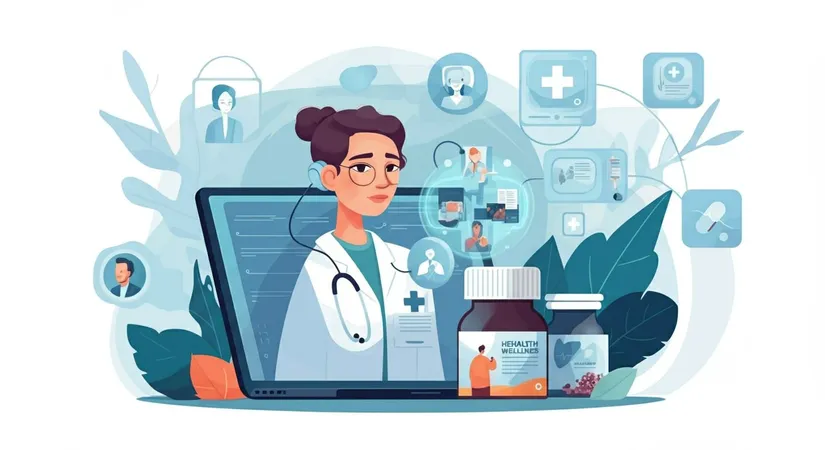In today’s fast-paced world, maintaining optimal health involves more than just regular exercise and a balanced diet. The integration of health insurance, effective health care services, and the right health supplements are pivotal for a comprehensive wellness strategy. Vitalica Wellness offers a unique approach by merging modern and traditional wellness practices, aiming to enhance both physical and mental well-being. This article explores the vital aspects of health insurance, the criteria for selecting the best health care services, the benefits of health supplements, and how advanced technology shapes the future of wellness.
Understanding Health Insurance: What You Need to Know
Key Components of Health Insurance Plans
Health insurance is a crucial aspect of managing healthcare expenses. It involves understanding various components such as premiums, deductibles, and copayments. For instance, premiums are regular payments made to maintain coverage, while deductibles are the amounts paid out-of-pocket before insurance kicks in. Copayments are fixed fees for specific services, like doctor visits. These elements vary across different plans, influencing overall costs and benefits.
Types of Health Insurance Plans
- HMO (Health Maintenance Organization): Requires choosing a primary care physician and getting referrals for specialists.
- PPO (Preferred Provider Organization): Offers more flexibility in choosing healthcare providers without referrals.
- EPO (Exclusive Provider Organization): Combines features of HMO and PPO, with no referrals but limited to network providers.
Each plan type offers different levels of flexibility and costs, making it essential to evaluate personal healthcare needs. For example, an HMO might be suitable for those who prefer a coordinated care approach, while a PPO could benefit individuals seeking more provider options.
Steps to Choose the Best Health Insurance Plan
- Assess personal and family health needs, considering factors like age, medical history, and expected healthcare usage.
- Compare different plans based on coverage, network, and costs, ensuring they align with healthcare priorities.
- Stay informed about open enrollment periods to secure timely access to desired health insurance plans.
Understanding these steps helps in selecting the best health insurance plans for 2025. Additionally, staying informed about trends like scientifically proven wellness secrets can enhance overall health management.

Choosing the Right Health Care Services for Your Needs
Evaluating Health Care Service Options
When selecting health care services, it’s crucial to evaluate the variety of options available. In metropolitan areas like Los Angeles, choices range from traditional medical practices to innovative wellness centers. Each offers unique benefits, such as specialized care or holistic approaches, catering to diverse health needs.
Factors to Consider When Choosing a Provider
- Accessibility: Ensure the provider is conveniently located or offers telehealth services for remote access.
- Quality of Care: Research patient reviews and provider credentials to assess care standards.
- Service Variety: Choose providers offering comprehensive services, including preventive care and specialist referrals.
These factors help in making informed decisions about health care services, ensuring they align with personal health goals and lifestyle preferences.
Comparing In-Person and Telehealth Services
- Identify the type of care needed, such as routine check-ups or specialist consultations.
- Evaluate the convenience of telehealth for minor issues versus the necessity of in-person visits for complex conditions.
- Consider the integration of AI in health care, enhancing diagnostic accuracy and treatment plans.
Understanding these aspects aids in choosing the right balance between in-person and telehealth services, optimizing health care experiences.

Exploring the World of Health Supplements and Their Benefits
Understanding the Role of Health Supplements
Health supplements are essential in bridging dietary gaps, ensuring individuals receive necessary nutrients. They come in various forms, including vitamins, minerals, and herbal supplements. For example, vitamin D supplements can be crucial for those with limited sun exposure, while iron supplements may benefit individuals with anemia. These products support overall health by enhancing immune function and increasing energy levels.
Categories of Health Supplements
- Vitamins: Essential for metabolic processes and preventing deficiencies.
- Minerals: Important for bone health, nerve function, and muscle contraction.
- Herbal Supplements: Offer natural remedies for various health conditions.
Each category provides unique benefits, catering to specific health needs. For instance, calcium supplements are vital for bone strength, while herbal supplements like echinacea can support immune health.
Choosing the Right Health Supplements
- Consult a healthcare professional to assess nutritional needs and deficiencies.
- Research the benefits and potential side effects of different supplements.
- Purchase from reputable sources, ensuring product quality and safety.
Following these steps ensures that individuals select appropriate supplements tailored to their health requirements. Additionally, exploring options like plant-based health supplements can offer sustainable and ethical choices for health-conscious consumers.
Navigating the Future of Wellness with Advanced Technology
Innovative Technologies Transforming Wellness
The integration of AI in health care is reshaping wellness by offering predictive analytics for personalized treatment plans. For example, AI algorithms can analyze patient data to predict potential health issues, enabling proactive interventions. Additionally, wearable health trackers provide real-time monitoring, allowing individuals to track vital signs and adjust their lifestyle accordingly. These technologies enhance decision-making and promote personalized health care.
Key Benefits of Advanced Wellness Technologies
- Real-time Monitoring: Wearable devices offer continuous health tracking, improving self-awareness and management.
- Personalized Care: AI-driven insights tailor treatment plans to individual health profiles, optimizing outcomes.
- Convenience: Telemedicine platforms provide easy access to healthcare services, reducing the need for in-person visits.
These benefits highlight the transformative impact of technology on wellness, making health care more accessible and efficient.
Steps to Integrate Technology into Wellness Routines
- Identify personal health goals and select appropriate technologies, such as fitness trackers or telehealth apps.
- Regularly monitor health data and adjust lifestyle habits based on insights from wearable devices.
- Consult with healthcare professionals to interpret data and refine personalized wellness strategies.
By following these steps, individuals can effectively incorporate technology into their wellness routines, enhancing their overall health management.
Integrating AI and Wearable Technology for Personalized Wellness
Revolutionizing Health Care with Advanced Telemedicine Solutions
Enhancing Health Management with Scientifically Proven Wellness Strategies
Frequently Asked Questions
What are the key components of health insurance plans?
How can I choose the right health care services for my needs?
What are the benefits of health supplements?
How is AI transforming health care services?
What steps should I take to integrate technology into my wellness routine?
Discover the path to holistic wellness and rejuvenate your mind and body with Vitalica Wellness. Call us today for a free consultation and take the first step towards a healthier you!
